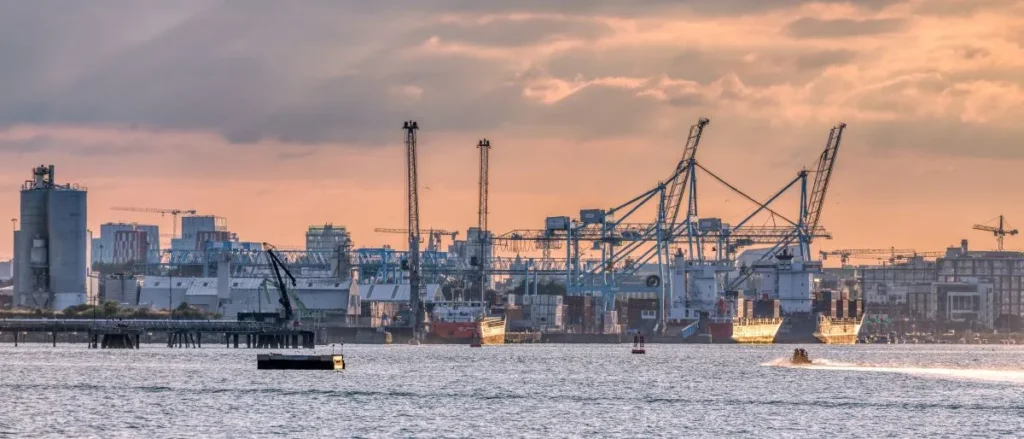Belorussian carriers forecast a good situation for the domestic TSL sector. The market has finally adapted to the mutual sanctions of Russia and the EU. Local carriers take over European loads, raise prices for their services (Europe will pay anyway) and invest in fleets. Finally, Belarus saw that being a transit country, it can derive many profits from its cooperation with the European Union and at the same time make use of the trade war between Russia and the Western world.
Everyone has already got used to the sanctions and understood the rules of the game. The economies of countries caught up in a trade dispute between Russia and the West are flourishing. The price of oil demonstrates positive dynamics and there are no political shocks in the markets,” says Alexander Maszkancev, head of the trading division of OOO Rising, a transport company belonging to the R Group.
Belarusians are currently focusing on the renewal and extension of their fleet, which is in a rather deplorable condition. For example, the average age of a fleet in the EU is 11.7 years, while in Belarus, according to various sources, it is 18-20 years (as in Russia and Ukraine). Belarusian carriers receive funds for investments in vehicles thanks to increased prices for transport services. Their situation is so good that manufacturers of tractors and semi-trailers received orders for 6-9 months ahead this year.
At the same time, the fierce competition prevails on the market – carriers want not only to renew their fleet but also to increase their market share. The pursuit of competitiveness makes the sector grow even faster. Transport companies participate in a real race for a position – they organize training for employees, improve business processes, implement modern sales practices, invest in IT solutions.
Those who take advantage of the opportunity and expand the scope of services with the transport of additional types of cargo benefit the most. In addition, carriers are open to new directions, improve the quality of services and pay attention to the optimization of costs. According to experts from the Rising company, this year Belarusian carriers do not compete with companies from the European Union, as before, but with companies from their own market.
The refrigeration sector suffers
At present, most of those who deliver loads of refrigerators lose out on the EU-Russia route. In comparison with freight rates from last year, in 2018, the prices of refrigerated transports fell by an average of 10-20 percent and reached the level of tarpaulin transport prices. This is the effect of fruit failure last year in Europe and the tightening of controls focused on the products under the embargo on the Russian border.
Transport permits (cold stores – editorial note) for Belarusian carriers are missing incessantly. We have too few European permits. There is a huge deficit for Russian I and II category permits, as well as Kazakh and Uzbek permits. Of course, it forces us to adjust our business strategy. In such situations, European companies can count on government support, which is not found in Belarus. That is why Belarusians cannot withstand the pressure of competition from foreign companies – claims Alexander Maszkankav.
In order to stay on the market, some logistics companies began to change. For example, the Fabeas group, which previously offered a full range of transport and logistics services, has now decided to slightly change its specialization.
We consciously left the freight market, because due to the decrease in the number of loads, restrictions, sanctions and embargo we started to compete not so much with logistics companies as with carriers themselves – claims Andrey Poddubskij, head of Fabeas. The group focused on sea and air transport as well as on direct rail deliveries from China.
The next stage of TSL development
According to experts, the growth tendency will not last long. Perhaps in the next year, the sector will have to adapt to the new conditions again, this time to its own developed companies and their high-quality services.
Soon the main direction of Belarusian logistics companies will be the digital economy, or more accurately – the ability to adapt to it and create a cheap and convenient way to serve customers – says Andrey Poddubskij. He adds that the appearance of some big players is hardly an option. – Belarus is not yet so attractive to investors and for now, one should not expect that a large foreign capital will appear on the market – he adds.
Soon, however, the situation may change. Domestic carriers have long been lobbying for changes in regulations and taxes, as well as for the development of logistics infrastructure, which would catch the attention of foreign investors. At present, Belarus’ logistic centers offer 812 thousand square meters of warehouse space, of which 653 thousand square meters constitute common use warehouses, 107 thousand square meters – temporary storage warehouses and customs warehouses, and 53 thousand square meters of cold stores. By the end of this year, the authorities of the country plan to increase the area of A class warehouses up to 900 thousand square meters. By the end of 2019, this number should increase to 1 million square meters.
Belarussians noticed their potential on the market and that they have been losing out on many opportunities. In December 2017, Belarus issued a decision in which it sets development goals for the entire industry for the next 18 years. They plan to double the turnover from logistics within 18 years, expand the warehouse base, change the business environment for warehouse logistics, and for carriers, and attract business – quotes Grzegorz Szenejko, owner of the forwarding company Go Logis, Newseria.
Still this year, Belarussians will build a large logistics center with a warehouse area of 5.7 thousand square meters next to the Bobrowniki-Bierestowica border checkpoint. In turn, next to the border crossing with Lithuania, Kamienny Łog, a transport and logistics center with a warehouse area of 18 thousand square meters will soon be built. On the other hand, a logistics complex of Bremen-Orsz will be built near Vitebsk, which will include warehouses and terminals. The complex will be built on an area of 230 hectares.
Belarus has a chance to be the logistics center of the Eurasian Union. Belarus has exactly the same position that Poland has in the European Union, that is, they are the gateway to the whole East due to the fact that they belong to one economic zone together with Russia and Kazakhstan. The market is so large, absorbent and has great perspectives – adds Grzegorz Szenejko.



